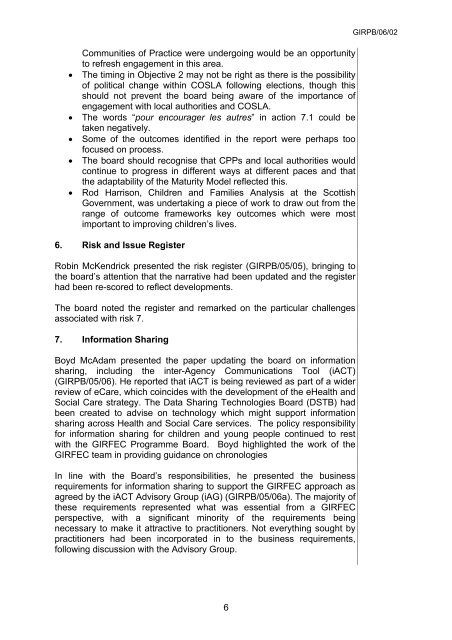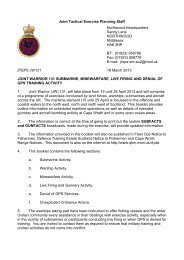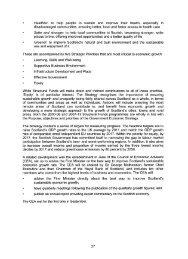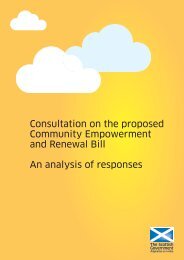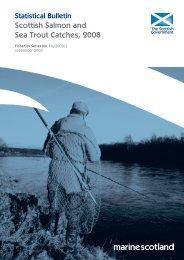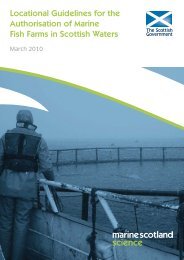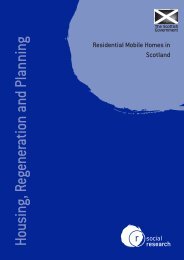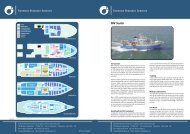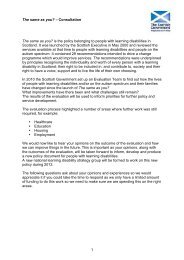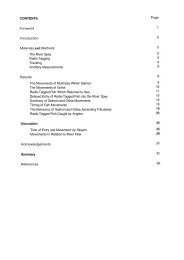13 March 2012 - Scottish Government
13 March 2012 - Scottish Government
13 March 2012 - Scottish Government
Create successful ePaper yourself
Turn your PDF publications into a flip-book with our unique Google optimized e-Paper software.
Communities of Practice were undergoing would be an opportunity<br />
to refresh engagement in this area.<br />
• The timing in Objective 2 may not be right as there is the possibility<br />
of political change within COSLA following elections, though this<br />
should not prevent the board being aware of the importance of<br />
engagement with local authorities and COSLA.<br />
• The words “pour encourager les autres” in action 7.1 could be<br />
taken negatively.<br />
• Some of the outcomes identified in the report were perhaps too<br />
focused on process.<br />
• The board should recognise that CPPs and local authorities would<br />
continue to progress in different ways at different paces and that<br />
the adaptability of the Maturity Model reflected this.<br />
• Rod Harrison, Children and Families Analysis at the <strong>Scottish</strong><br />
<strong>Government</strong>, was undertaking a piece of work to draw out from the<br />
range of outcome frameworks key outcomes which were most<br />
important to improving children’s lives.<br />
6. Risk and Issue Register<br />
Robin McKendrick presented the risk register (GIRPB/05/05), bringing to<br />
the board’s attention that the narrative had been updated and the register<br />
had been re-scored to reflect developments.<br />
The board noted the register and remarked on the particular challenges<br />
associated with risk 7.<br />
7. Information Sharing<br />
Boyd McAdam presented the paper updating the board on information<br />
sharing, including the inter-Agency Communications Tool (iACT)<br />
(GIRPB/05/06). He reported that iACT is being reviewed as part of a wider<br />
review of eCare, which coincides with the development of the eHealth and<br />
Social Care strategy. The Data Sharing Technologies Board (DSTB) had<br />
been created to advise on technology which might support information<br />
sharing across Health and Social Care services. The policy responsibility<br />
for information sharing for children and young people continued to rest<br />
with the GIRFEC Programme Board. Boyd highlighted the work of the<br />
GIRFEC team in providing guidance on chronologies<br />
In line with the Board’s responsibilities, he presented the business<br />
requirements for information sharing to support the GIRFEC approach as<br />
agreed by the iACT Advisory Group (iAG) (GIRPB/05/06a). The majority of<br />
these requirements represented what was essential from a GIRFEC<br />
perspective, with a significant minority of the requirements being<br />
necessary to make it attractive to practitioners. Not everything sought by<br />
practitioners had been incorporated in to the business requirements,<br />
following discussion with the Advisory Group.<br />
GIRPB/06/02<br />
6


